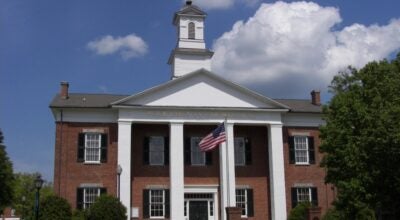Polk residents, officials urge state to keep option for land transfer tax
Published 3:25 pm Tuesday, June 24, 2008
Some Polk residents are urging the state to continue allowing referendums for a highler land transfer tax despit pressure from the N.C. Realtors Association to do away with the option.
The N.C. General Assembly last year gave counties the right to hold a referendum on local revenue options, including increasing either sales tax or a land transfer tax. Neither can be enacted without an approved referendum by voters, and Polk County commissioners unanimously decided last year to hold a land transfer tax referendum this November.&bsp; Commissioners have designated the first year of revenues, if approved, to farmland preservation, something county leaders say Polk has taken the lead on in the state. Polk leaders also say although 20 referendums on the land transfer tax have failed by voters in other counties, Polk County will be different.
Earlier this month the senate finance committee agreed to repeal the local land transfer tax since all referendums so far have denied the option.
Many in Polk County are urging residents to contact state legislators to leave the option in tact so Polk County can vote. Polk is the only county which has a referendum this year on the option.
&dquo;The whole issue here is that in 2007 the General Assembly gave citizens the right to vote on local revenue options and now the N.C. Association of Realtors is trying to take that right away,&dquo; says Doug Harmon, owner of Harmon&squo;s Dairy in Green Creek and Chair of the Polk County Agricultural Advisory Board. &dquo;We should not have our right to vote taken away by a special interest group. I think people are tired of special interest groups trying to tell us what to do. I know that&squo;s how I feel.&dquo;
The N.C. Association of Realtors has pledged $10 million to try to get the bill repealed. Some senators and members of the realtor&squo;s association say that anything added to the cost of selling homes or transferring real estate is counterproductive and lawmakers should be trying to do things to spur people to buy, not discourage.
But Dave Slater, also with the Polk County Agricultural Advisory Board says that Polk County is different and has been a leader in North Carolina for farmland preservation.
&dquo;A farmland preservation fund has been established for the purpose of educating our voters as to why voting yes for the referendum will be good for the rural character of Polk County, a characteristic many citizens appreciate,&dquo; said Slater in a letter to Sen. Tom Apodaca and Rep. Trudi Walend. &dquo;I am baffled as to why some of your colleagues feel the need to repeal our voting rights. They may not know how useful the land transfer tax will be in Polk County to the preservation of our farmland, to the efforts of farm families in keeping their land in their families, to the production of local food for local buyers, to the preservation and enhancement of our environment through ground water recharge, clean water in our streams, ponds and rivers, and the preservation of wildlife habitat in fields and forests.&dquo;
Slater says legislators may not realize what Polk can do with the tax revenue and it is many in Polk County&squo;s hope that its success will be a model for other North Carolina counties.
&dquo;The real estate lobby is willing to spend $10 million to prevent our 20,000 county residents from voting on the land transfer tax referendum,&dquo; Slater says, &dquo;which will be used to protect our county&squo;s rural character by helping to save farmland. That seems a little out of balance. What is more important to our state leaders? Their money or our votes?&dquo;
Judy Heinrich, campaign director for the Farmland Preservation/Land Transfer Tax referendum, says that the association of realtors is a direct attack against Polk County.
&dquo;They know that Polk is the only county with a land transfer tax referendum this year and they know that we plan to use any proceeds for farmland preservation,&dquo; Heinrich says. &dquo;But this group historically places their own interests above community interests by actively fighting things like steep slope restrictions, wildlife habitat protection and building moratoriums. As citizens we need to bombard our legislators with emails and phone calls telling them not to let our right to vote be taken away by a big-money lobbying group.&dquo;





